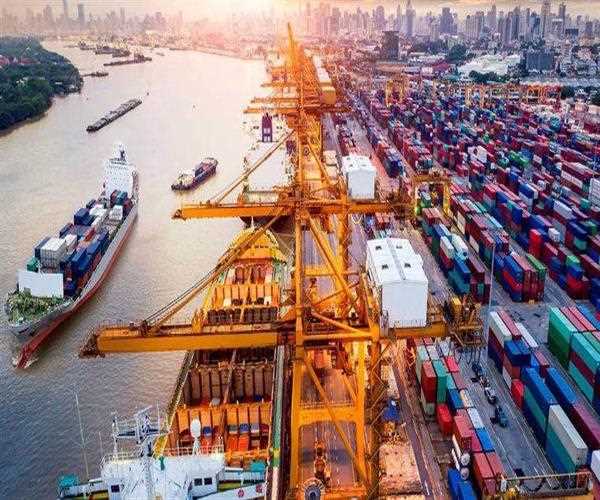Search here

13-May-2020
The Hollow Argument Of Open Global Trade
The COVID-19 emergency has encouraged supporters of protectionism and deglobalization. Natural worries about lost assembling positions and rising imbalance, or the craving in certain circles to "rebuff" (substitute) China with higher duties, have now been enlarged by a contention against worldwide flexibly chains.
As indicated by this view, generally appropriated creation has made economies less independent, and along these lines less strong. The arrangement is to reshore existing business tasks, seaward less later on, and decrease dependence on exchange all the more for the most part.
The contention for flexibility isn't new. Worries about "food security" are routinely used to legitimize protectionist intercessions in the horticultural segment. What's more, fully trusted, the case – made every now and again as of late – that food flexibly chains are increasingly secure in light of the fact that they are residential appears to be substantial. However, upon closer thought, the circumstance is significantly more nuanced, particularly on the off chance that one embraces a sensibly wide perspective on "strength."
Certainly, exchange cynics would state that the COVID-19 emergency has uncovered worldwide gracefully chains' vulnerabilities to send out limitations and outside stuns. Numerous nations, including EU part states, at first forced fare limitations on close to home defensive gear (PPE, for example, face veils, which may have implied that some bringing in nations couldn't get these things when they were most out of luck.
It isn't amazing that administrations would place their own residents first in a crisis. Indeed, even the World Trade Organization, which typically bans send out limitations, permits special cases for "fundamental items." But the ongoing fare limitations were brief in many nations, and their negative impacts were exceeded by the advantages of exchange PPE somewhere else. Having risen up out of the emergency sooner than most different nations, China immediately continued creation and expanded its fares of PPE to all nations out of luck, lightening worldwide deficiencies at a crucial point in time. As indicated by the New York Times, China is currently fabricating multiple times a larger number of covers every day than it did before the emergency.
A subsequent contention centers around a specific component of present-day exchange: the hyper-specialization of creation and conveyance chains that stretch over different nations. Specialization permits worldwide flexibly bind to limit costs and amplify proficiency, yet it can introduce intricacies when creation should be increasing rapidly.
Late ventilator deficiencies brought this point home. The standard ventilator innovation used to treat COVID-19 patients includes 300 distinct parts whose creation traverses numerous nations.
Assembling more ventilators hence calls for close coordination when numerous nations' first nature is to vie for rare parts. What's more, regardless of whether the entirety of the individual parts can be secured, creation despite everything requires an elevated level of specialized expertise – an ability that numerous nations may have offshored.
Regardless, advocates of globalization see these difficulties as proof that worldwide coordination and cooperation are more important than any time in recent memory.
They would contend that having numerous sources spread across nations improves flexibility. As opposed to being "just as solid as its most vulnerable connection," a worldwide flexibly chain is in reality progressively strong, on the grounds that it can fix broken connections by supplanting a source in one stricken nation with an elective source in another nation.
Exchange cynics may contend the inverse, asserting that coordination issues could be maintained a strategic distance from inside and out if the graceful chain for ventilators were brought home, as on account of food.
READ HERE MORE : COVID-19 Affecting The Democratic Spirit
But COVID-19 has been spinning out of control in US meatpacking plants as of late, upsetting one of the nation's basic food sources. The main thing propping numerous plants up now is a danger from the government under the Defense Production Act.
As a general rule, household gracefully chains are increasingly vigorous just in profoundly impossible situations where every single other nation is at the same time hit by a negative stun. In the event that you are the only one not burdened by a worldwide emergency, it clearly assists with having creation situated at home.
On account of a pandemic, each nation is influenced, however, flare-ups will in the general top on various occasions. At the point when the United States is confronting the most noticeably awful of the emergency, different nations may have just straightened their pandemic bends, and can in this manner fill in as a wellspring of exchange – and of versatility.
All things considered, on the more broad inquiry of how we should manufacture flexibility, pundits are on the whole correct to question the fixation on transient productivity and benefits.
Along these lines of working together obviously has left firms and flexibly ties too shelter even consider dealing with a significant emergency like COVID-19. A specific level of repetition (or momentary wastefulness) may truly demonstrate lifesaving later on.
Looking after repetition –, for example, by holding a specific number of emergency clinic beds or working an additional veil processing plant – would have eased bottlenecks in the present emergency.
Later on, we should search for approaches to work in this sort of additional limit, by speculation as far as powerful as opposed to static productivity. The COVID-19 emergency offers significant exercises; however, it has not outfitted any great contentions against exchange or worldwide flexibly chains.

Content Writer/Journalist
I am a content writter !
Join Our Newsletter
Subscribe to our newsletter to receive emails about new views posts, releases and updates.
Copyright 2010 - 2025 MindStick Software Pvt. Ltd. All Rights Reserved Privacy Policy | Terms & Conditions | Cookie Policy